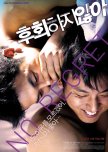
This review may contain spoilers
A first class story telling ... you will be saying 잠깐 만요 !!! at the end
A hard hitting 2006 story that takes you on a roller coaster ride. It is powerfully scripted and very, very well executed by the actors and production team. I wish I could add that in BOLD type ... the movie blew me away. Korea has produced a few golden oldies in this genre that are absolutely first class ... and this is one of them in my opinion. I have watched this several times and have absolutely 'no regret' doing so, there is always something to take away from watching it ... how to be a better human being.It makes me wonder what the hell happened since 2006 that made Korea go all coy on these more realistic life stories ... not that I don't like the current crop of post 2020 Korean BL's but I like these stories too because, more than anything, they cast a powerful light on the human heart and all the complexities of thought and emotion that surround the character's world view of life and love and attraction and struggle and pain and death and what makes you keep on going ... or not as is sadly sometimes the case.
Spoiler: even though I have seen this movie a several times ... it always has me in tears .... those last few scenes of beautiful Ga Ram (Kim Dong Wook played that character beautifully) ... are just heart crushingly tragic 。:゚(;´⌓`;)゚:。. Why do the beautiful souls go so soon?? When Song Jae Min is calling Lee Su Min and can hear his phone call in the car park ... I just want to scream out 잠깐 만요 !!! The movie really draws you in ... it is that good ... AND ... and there is a cheeky surprise ending \(‾‿◝ )/
Was this review helpful to you?
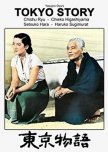
"To lose your children is hard, but living with them isn't always easy either. A real dilemma."
Tokyo Story is the third film of the loosely connected "Noriko Trilogy" and probably the most well known and well-regarded by critics. Family and societal themes are explored extensively in this film as was the case in Late Spring (LS) and Early Summer (ES). Tokyo Story (TS), perhaps, leans a bit more on societal changes in response to the post-WWII industrial boom. The younger generation, clearly, is consumed with work and family matters play second fiddle. In LS and ES, there are societal changes, but the social world is slow paced and lazy as if it is in stupor from the recent war tragedies. In TS, the social world is at a frenetic pace; folks are concerned about getting seats on trains; messengers rush about to deliver telegrams; and hot spring hotels - places typically associated with relaxation - are conveyed as rowdy gambling denizens.Although I may have disapproved of some of the character temperaments in LS and ES to a mild extent, TS introduced the first truly irritating character - Shige who was the eldest daughter of Shukichi and Tomi. Ozu's characters and plots in the Noriko Trilogy tend to be subtle and restrained. Shige's rudeness and obnoxiousness was too plain. And while I don't mind that the character has those traits, their 'in the face' presentation of those traits was distracting. When I read descriptions of TS, reviews, or commentary, I noticed there is an over-generalization that the children in this film did not care about their parents. That's simply too black and white. A close inspection of the characters reveals that the circumstances of the busy children and aging parents are much more complex. In fact, the filmmakers utilize Noriko to elucidate these complexities by asking Noriko to explain to Kyoko, the youngest daughter, the nuances of the family's inter-generational dynamics. Personally, I feel the commentary on family dynamics presented in TS would be have been more effective, and certainly more enjoyable, had Shige been presented as a nuanced character.
Noriko, while still a praiseworthy character in TS, felt the least compelling when compared to Noriko in LS and ES. In TS, her filial piety towards her mother and father in-laws felt slightly forced, even inauthentic. Perhaps the filmmakers and viewers of LS and ES were accustomed to Noriko's temperament across films and would have no problem with this presentation in TS. Yet, viewing Noriko in TS without those prior associations, I stand by the presentation as weaker. Even more so since Noriko of TS was not living near her in-laws nor was she in frequent communication. Playing up her filial piety in contrast to the blood children's selfishness felt inauthentic. It was an unfair presentation of the children to beat us over the head with a point where nuance would have served better.
Despite TS's prestige, I enjoyed this film the least of the three Noriko films. I found myself more conscious of the slow pace of TS compared to LS and ES. It is still a strong film, but it makes me wonder why so many folks seem to place TS at the top of the Trilogy. There are, from a filmcraft perspective, some marked improvements. In TS, the music right off the bat signalled greater complexity and maturity compared to the earlier films. Camerawork was steadier and more varied. There are probably other 'filmmaker' improvements that escape the average viewer's eye. So, I suspect that filmmakers appreciate these advances in craft and rate it highly. But for me, as an average film viewer, the quality of narrative and impact to self was a few steps beyond my viewings of Late Spring and Early Summer.
Lastly, the setting of Late Spring and Early summer was clearly Kamakura; in fact the opening scenes place us at Kita-Kamakura station (a place I've been to). I enjoyed that specificity of location. I could even look up what Kamakura looks like at present if I want. In Tokyo Story, the story took place, loosely, in Tokyo. Well, that's a pretty large area and can mean many places depending on the cultural context. In short, I would have appreciated greater details about the locales of the characters, especially since Shukichi and Tomi were being 'shown around' Tokyo. Yes, we know they go to Akami, which is outside of Tokyo, but within their Tokyo adventure, we get no locations.
Was this review helpful to you?

This review may contain spoilers
"You notice things if you pay attention"
In the Mood for Love delivered an achingly beautiful story of longing and love. The story could be as painful for the viewer as it was for the main characters, Mo Wan and Lai Zhen, as they dealt with their repressed feelings for each other.Chow Mo Wan and Su Lai Zhen move into adjacent rooms in an apartment complex. The landlady, Mrs. Suen, holds frequent mahjong games and sees all. Lai Zhen asks her husband who is making a business trip to Japan to pick up two purses for her boss, one for his mistress and one for his wife. Mo Wan's wife often works late and takes trips as well. It doesn't take long for Mo Wan and Lai Zhen to compare notes when they both realize that his wife carries a Japanese purse just like Lai Zhen's and her husband wears a tie like Mo Wan's. They commiserate by role playing in regards to their spouses. Gradually, they spend more and more time together while attempting to avoid gossip. They determine to remain platonic so as not to become adulterers like their spouses.
The strength of this film was Tony Leung Chiu Wai's and Maggie Cheung's nuanced performances as they grieved their marriages, exhibited anger over the betrayals, and most of all the subtle build-up of their feelings for each other. It didn't hurt that they looked stunning together and by their every move and word, you could believe their characters. Mo Wan's hooded glances as Lai Zhen gracefully passed him in the hallway or on the way to the noodle shop conveyed a deep appreciation for her. The touch of their hands was seductive and intimate, revealing their desire and need for each other. Like lovers, they longed to see each other and simply be near one another.
Director Wong Kar Wai used a musical theme when they passed each other or when they were at a busy office or loud mahjong gathering to let us know they were thinking of each other. Sultry Nat King Cole's music accompanied many scenes providing a soothing background. His song about green eyes (Aquellos Ojos Verdes) played when the two revealed they knew what their spouses were doing together. "Quinzas, Quinzas, Quinzas" (Probably, Probably, Probably) played while they decided what to do about their future.
Most of the frames were tight, shots through doorways, windows, narrow hallways, alleyways, and around corners. Though the rooms were small, the images of the two eating alone or sitting alone only emphasized their aloneness and loneliness before finding each other. Whether working together on Mo Wan's martial arts serial in a rented room or trapped in a room with the rowdy mahjong players just outside, the tension and tiny revelations of familiarity bled through. Many of the scenes were in the dark or rain, insulating Lai Zhen and Mo Wan as they sorted through their complicated feelings for their spouses and for each other. As the two spent more time together, the progression of days was often shown by the changing colors of Lai Zhen's gorgeous cheongsams.
As Mo Wan realized that Lai Zhen would not leave her husband and his feelings had grown too strong to control, they began to rehearse their good-byes. I have to admit to not understanding her loyalty to her husband at this point. He and Mo Wan's wife had flaunted their affair with the identical gifts and trysts in the apartment room. It was as if they wanted to get caught or simply didn't care. I'm also not sure if both Mo Wan and Lai Zhen had both truly agreed to not having their own affair. There were times when it seemed he was fishing to see if she'd changed her mind. Eventually, when it was too late, they did seek exits from their marital traps. At that point Wong Kar Wai resorted to cliched misunderstandings and missed opportunities which cheapened this mesmerizing love story for me.
I'm not sure if Director Wong wanted the audience to sympathize with the couple or just be content with watching their story unfold. He never fully developed the characters outside the forbidden relationship and tantalizingly dangled a possible happy ending in front of us and the characters only to snatch it away...repeatedly.
"He remembers those vanished years as though looking through a dusty window pane. The past is something he could see but not touch. And everything he sees is blurred and indistinct."
Maybe when all was said and done, a beautiful memory of a seemingly perfect relationship was better than reality.
2/14/23
Was this review helpful to you?
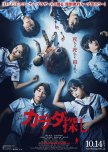
Probably the cutest gory horror movie ever
I loved this! What a nice treat for those of us (me) who didn't have anyone to celebrate valentine's day with lol.Now, I am someone who doesn't usually watch horror movies. I am a scaredy-cat on most levels. But I enjoyed this movie, even if I had to cover my eyes for some bits. It was pretty gory and had something à la jumpscares, but it was all bearable! It had a simple premise of a time loop where the six main leads had to find body parts scattered around the school; I thought it was brilliant. As a very lovey-dovey type of person, my favorite part of the movie was the developing friendship between the six. Watching a horror movie is much easier when 1/4 of the time is spent with your heart fluttering from both platonic and romantic bonds!
Watching this movie, I realized how big an impact sound has. My heart would start pounding (both in fear and happiness) depending on the music and different noises. Overall, an enjoyable watch. I was very close to skipping, but I'm very glad I didn't. Stay tuned for the post-credit scene!
Was this review helpful to you?
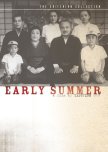
The weight of family expectations, oh how heavy.
Although the three Ozu films {Late Spring, Early Summer, and Tokyo Story} are not connected in story, we see many of the same actors, and the female leads -all named Noriko - are played by Setsuko Hara. Across the three films, we experience similar family and societal conflicts and a consistent visual style, film pace, and sleepy music. There's a familiarity and continuity despite all three films being distinctly different stories. The films were made in in close chronological proximity - 1949, 1951, 1953. They're appropriately considered the "Noriko Trilogy" for that connectedness we feel when watching the trio of films.The overall pace of this film is andante (moderately slow). So when there are scenes of anger or lightning quick decisions, we feel those scenes powerfully. Noriko's spontaneous decision to accept an impromptu marriage proposal is profound, shocking, confusing. Can this compliant daughter really act in such an individualistic way is what we wonder. But let it sink in a bit more, and it's all too obvious that the decision makes sense. We're given clues about the 'cost' of social obedience. Noriko's unkind brother and forlorn sister-in-law are moving along with their arranged marriage as puppets in a play. Noriko has enough experience with the type of man she doesn't trust; her brother is unkind and controlling; her boss is flirty; her suitor, Mr. Manabe, sends a private investigator to research her - wouldn't we feel a bit slimy after that? The filmmaker teases us by not even showing us what Mr. Manabe looks like; who cares if he's rich and good looking? Noriko's selection of Yabe is somewhat by process of elimination. She even argues that she doesn't 'love' him and instead 'trusts' him. He's the one to accept her individuality, the one she can lean on for support rather than take instructions from.
Noriko's independent decision, without consulting family - or even the groom! - is symbolic of a change or breakdown in the social order. Post WWII, Japan was grappling with many societal changes. Even the films that Ozu made were subject to intense censorship by American authorities. It's even comedic that Ozu chose a young woman making a choice for themselves as the symbol for social order breakdown; how dare a woman do that! I suspect Ozu's sympathies lay with Noriko, with individuals, and felt it was important to highlight individuals' livelihoods. When people are lumped into groups, we may come away with dangerous biases and generalizations, not only beliefs about others but also beliefs directed inwardly. Certainly, many Japanese did not want to fight in the wars, but were forced due to the social order; it was not acceptable to go against the rise in nationalism. Ozu, it seems, welcomes this social order breakdown. Yet, in that breakdown, there are things to lament, things that are lost. Noriko will move away from her family; her parents will move away as well to live with their elderly uncle. Like a wistful wind, the family is dispersed to far places in Japan.
Many of the actors in the Noriko films play different characters, roles, with wide ranging temperament. Chishu Ryu is a gentle, middle-aged father in Late Spring, a brusque and dominant elderly brother in Early Summer, and a resigned grandfather in Tokyo story. It's in watching his range in all three films where we fully understand the actor's skill, and long-lasting collaborating with Ozu (he appears in 52 of 54 Ozu films and featured in over 160 films and 70 television productions). Chishu's forceful manner in Early summer is quite enjoyable because of the contrast to other roles. It's a breath of fresh to see him in something other than a docile, fatherly figure. Setsuko Hara, on the other hand, maintains a continuity in character and affect. There's a stubborn purity to Noriko; when her purity survives, it is satisfying and comforting, but when it is broken, it is heartbreaking.
What exactly did Noriko represent to Ozu, Japan, and to the broader film audience of the of 1940s and 50? What does Noriko mean to us now in 2023? This is, in part, the beauty of the Noriko films, that it elicits so much reflection at a broad, universal level.
A loaf of bread loses its dignity in this film.
Was this review helpful to you?

This review may contain spoilers
CREEPY & ENTERTAINING
How a bunch of classmates work together to find the scattered pieces of corpse in the school.This movie shows how they help and cooperate with each other and the change of the bond among them during this process, Asuka our main female lead, like asusual she didn't get any friends, but during this time she got the best days of her highschool, she along her classmates tries to find the eight scattered pieces of Haruka's corpse in the school -- THE RED PERSON .If they failed to find the Haruka's body, the day will keep repeating.... & they will continue to die until they find it.
I ACTUALLY FELT FIRST HALF WAS MORE CREEPY AND I LOVE IT, thanks 2 this RED Person
Yes it was worth watching & I don't feel like it's a waste of time becoz it's just a movie of 1hr45min
Finally I really love the chemistry between the Main leads
Was this review helpful to you?

This review may contain spoilers
"Everyone wants to be with family"
If I thought the original Monster Hunt was a fevered sugar dream, Monster Hunt 2 said, "hold my soda." The first Monster Hunt movie had plenty of death and some monster gore. MH2 replaced the darker elements with more cuteness and bodily function jokes. MH1 threw as many movie themes as they could at the screen to see if something would stick. MH2 decided to not develop or continue most of the mysteries from the first movie and just went with "Ohana means family" to quote Lilo and Stitch.MH2 begins after new couple Song and Huo left baby squid monster Wuba in the Monster Realm for his own good. In their gender reversal of roles, Huo continues to berate Song as the woman ever since he was pregnant with the radish monster. Song, despite his use of his father's sword in the previous film, is still pretty useless in battle and suffering from postpartum depression. Song and Huo have some second thoughts about leaving Wuba, especially after watching a mother monster and her child after their capture by the Monster Hunter Bureau. Even in captivity the family is happy to be together.
Taiwanese actor Tony Yang plays the helpful head of the Monster Hunter Bureau. He confirms that Song's father disappeared 10 years ago and that wraps up everything about that mystery for this movie. I guess they are saving the discovery of the father for the next one. Song and Huo decide to find Wuba using the mystical method of the MHB. Fortunately, the little fanged tooth monster prince is nearby.
They lucked out because after they left the little radish in the monster realm, the monsters had a rousing Bollywood number crashed by bad monsters after Wuba. The little guy ended up on the run and back in the human realm.
You know there's not enough story when the majority of it is spent on veteran actor Tony Leung Chiu Wai instead of the main characters and dangling plot points from the first film. Despite his film pedigree he fully committed to his role as gambling scam artist Tu who uses monsters to help him cheat, often while he wears outlandish disguises. Aside from a long list of creditors and scam victims, he was also troubled by a love interest he owed money to as well. As movie coincidence would have it, a hunted Wuba is saved by BenBen, Tu's monster partner in crime. There were numerous scams and colorful chases through the businesses and towns, leading the story nowhere. At first Tu is only interested in using Wuba to pay off his debts but even a child could see the redemption story coming from a mile away.
Song and Huo are finally reunited with Wuba, Tu seemingly abandons them, and the real villains reveal themselves which will not be a surprise to anyone. Another story that gains no traction in this film is Wubo's royal blood and how he is supposed to unite the human and monster realms. He also doesn't drink blood in this one as he did in the previous film.
The theme that is repeated ad nauseam is that sometimes parents have to go away to better provide or protect their children but that they always miss them. "There's no greater pain than being separated from family." "Everyone wants to be with family." Perhaps it's because some parents have to leave their children to go elsewhere to work to provide for them, but whatever the source, the film makes sure everyone gets the emotional thrust of the writing.
The costumes and sets were well done, looking almost steam punk in design. The CGI was much improved, the strange monsters combined perfectly with the live action and the green screen use was seamless. All the money thrown at this one after the first film raked it in definitely showed up on the screen. The monster realm's lavender covered tall rock formations were beautiful. Also, both Tonys gave a bit of acting gravitas to the film.
MH2 was an extremely colorful, fast paced, bouncing, spinning, spitting, place holder until the 3rd film inevitably comes out and hopefully answers the questions asked in the first film. Aside from reuniting the little human/monster family and possibly adding a couple of new characters, nothing really happened to forward the story. Though gentler in nature that its predecessor, it lacked the sort of impact that would make it memorable. MH2 was a frothy lesson in style over substance and a sinfully sweet exercise in treading cotton candy until the real story shows up.
2/13/23
Was this review helpful to you?

Sad Exit for a Great Actress
Considering the cast and director of Train to Busan, this film should have been far better, but the writing and storyline are both thin and clumsy. Some scenes are simply dropped in the middle as if they couldn't figure out what to do with them next. So the film ends up fragmented and changes into an often frenzied, overly long action piece. However, there are some nice visuals in set designs, the two veteran female leads are wonderful, and the mother-daughter story is moving. The tragic death in May of Kang Soo Yeon is heartbreaking. She was a deeply respected Drama star in the original Korean Wave, so this film should have been such a comeback for her. Instead, it is her sad epitaph: And she is wonderful. RIP Lovely Lady 💔Was this review helpful to you?
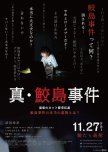
Unfriended - Japanese edition.
Here’s the problem - the rules they introduce make no sense. Their explanation of the curse goes against the whole opening scene in the movie. It was painfully messy, the information was dropped here and there and it was honestly not that easy to put it all together. The basis of it all is easy to understand, but all the details make no sense.We know close to nothing about the main characters, there is no real diversity in personalities either. They are more or less copies of themselves, so when the bad things started happening, I couldn’t care less, because they did not really seem like real people to me.
At the end of the day, it was just boring. It’s a really simple story that could have been saved by the atmosphere, but they showed too much, everything was happening too quick, and there was no real time to truly dive into what was happening on screen.
Was this review helpful to you?
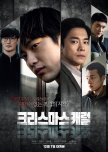
A horrid and depressing story of revenge
The first scene was just anguish overload. It introduced a grief-stricken Il-woo (Park Jin-young) seeking to avenge his twin brother's death. Park Jin-young's conveying raw emotions of grief and anger during the first 5 minutes was just flawless. It was just applauding that he was able to get rid of his flower boy Kpop idol persona and transform into a dirty, gritty, and morally-ambiguous character. "A Christmas Carol" is the pinnacle of his acting chops and just proved his versality. Basically, PJY is the highlight of this movie and deserves an award nomination at least.For the plot, it had a stable direction while it focused much of its first half on the violence/revenge part then addressing the problem on the second half. There are several trigger warnings and some people won't be able to digest or feel the same rage as me while watching it. If one could be able to get past through the first hour without having the urge to end it, the second half, although darker, would be interesting to watch.
It was emotionally-investing to see Il-woo's journey in achieving justice for his brother's death. The flashback scenes shed some light but at the same time, just felt utter pity towards Wol-woo's plight. Il-woo's realization later on was just heart-breaking, as with most scenes towards the ending.
Could've been better in terms of tension build up especially when it was revealing who was behind the crime. The reveal was still good, it was somewhat surprising but it also felt disjointed in terms of its execution. But when everything was then connected, it now all made sense, and it being gory is such an understatement. For seasoned movie watchers though, the "plot twist" could be already seen a mile away.
Even with all the horrible events all throughout the movie, the ending still provided a glimpse of light. Only a glimpse, since it doesn't yet evoke a societal-level change and the court verdict was questionable, but still a glimpse, since it triggered a talk, if not a controversy about this movie and its story. Maybe it can be a catalyst for such gruesome incidents to be stopped and prevented in the future. With that in mind, I think this movie was able to tell its message to the viewers quite well aside from few wonky sequences and story telling on the later part.
It's not obvious based on the final outcome, but this movie actually faced severe restrictions from the Korean movie board and had to be revised four times before being finally released. Yet despite the fact, 크리스마스캐롤 ("A Christmas Carol") was still able to portray a horrid and depressing story of revenge.
Was this review helpful to you?

3 Snake 3 Furious
Had some very fun elements, but felt rushed at times.The dinosaurs were a great addition, and the interactions between Kai and the snake were wonderful. However, the VFX was of lower quality than in the previous two Snake films, which was a bummer. It would have been cool to see snake vs dinosaur fights in higher quality. The parent-child dynamic is explored here, but was handled better in Snake 2. The acting is decent: Chen Zi Han is a believable overprotective mother, but she doesn't have a lot of material to work with. The side characters as well could have used more development, even if we only got a few lines of dialogue explaining more about their reasons for visiting the island.
Overall, still a nice addition to the Snake series, but not the best of the bunch.
Was this review helpful to you?

It deserves better rating
For those that are afraid of this movie, this is not an easy movie to watch as it deals with dark themes and it can be triggering, but it's totally worth it. I thought I wouldn't make it to the end, but half way into the movie it got better for me and my feelings. I could say lots of things about it, use many other words to describe it, but I'll simply say this: It's beautiful.Was this review helpful to you?
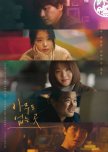
No plot, just vibes.
I personally love this movie. It isn't your typical movie with story telling through actions and countless scenes, but instead tells stories of different characters through conversations that the main character has with these individuals. It really is just the main character meeting different people and listening to what they have to say with a *small* plot twist with one of the characters. I guess you could put this movie into one of those "no plot, just vibes" list but personally that's the type of media I love, I also loved listening to the characters myself and empathizing with them.Was this review helpful to you?

Delicate Spring makes way for powerful Summer
What's remarkable about this film is that it appears completely unremarkable. The pace is slow, there's no action, the characters look lethargic, and the dialogue and cinematography involve us with mundane matters and scenes; the music is painstakingly slow - even a tune we all know well, "Wedding March", is slow and somber; there is virtually no excitement; even the trains move slow. It is remarkable how this film kept me emotionally and intellectually engaged for ~2 hours and prompted ample reflection after the film ended.Since this film is a part of the classic film canon, you can easily look up professional critics' and filmmakers' commentary. Consider that so many have put this film in their top 100 films of all time list; that's not an easy list to make! However, I'll share a few thoughts on how I connected with the film.
Consider the title, "Late Spring". The film was inspired by the short story, "Father and Daughter", by Kazuo Hirotsu. The short story title is directly related to the film's characters and plot; we don't get many explicit clues that the story takes place during Spring, so the film title is more evocative than descriptive. So, why not call the film, "Father and Daughter"? I don't know the reasons the filmmakers chose "Late Spring" as the title, but its suggestion to think about the film metaphorically is quite effective.
Noriko and her father, Somiya, are delicate souls, and their relationship with one another is tender in love to an extreme. After father is told by daughter "no play until work is done", the father's impatient response of "go bring the tea" is the comical peak of his anger (if only tiger parents could study this scene). The impending transition of their relationship status from live-in daughter/dad to no longer living with one another signals a change in their 'season' as a family. Daughter and father were happily living in a delicate Spring. With Noriko's upcoming marriage, they quickly move to Summer.
Consider Spring, as a social metaphor, representing individuals' inner thoughts and desires. Spring is our most intimate selves. Like the ephemeral spring blooms of cherries and irises, our Spring selves bloom beautifully. But Summer comes roaring like a lion. Spring is never long enough for us.
Summer is the metaphor of group-level or societal thoughts, expectations, and values. Summer is powerful, (more) lasting (than Spring), and self-assured. Societal and group structures like work, school, and family ask us to 'grow up' and 'ripen' - be practical, be productive, is what society says to us. It's as if they say "Enjoy your spring blooming self, briefly, but not too long; we need crops to feed our society, so please get to work; we needs kids to keep our species going, so please get married; we know what's best so please do what we say".
Doesn't it always seem like Summer is rushing Spring? And Spring is too kind to overtake Winter?
As I watched this film, I was aware of my 'Spring' thoughts/feelings and 'Summer' thoughts/feelings. In summer mode, I bought what dad eloquently said about the cycles of life, how marriage is part of that, and father and daughter must move on from one another. That's the script of societies, of families, of 'normal' human relationships. In Spring mode, what dad says seems forced, manipulative, inauthentic. What's really wrong with Noriko living unmarried with father for the remainder of her days? It seems almost every character besides Somiya and Noriko are happy with the upcoming marriage, even relieved, as if the father and daughter's relationship was overripe and soon to rot. That's the summer thinking.
Many of the relationships in this film can be viewed, in the spring sense, as pure, intimate, and innocent. But switch to summer thinking/feeling, and those same relationships are now viewed as impure, vulgar, and lacking appropriate distance between expected social roles. Noriko's playful relationship with Mr. Onodera (father's friend), can easily be viewed either way; she's having a playful chat with someone she trusts or there's something inappropriate since their age gap is too great, and Mr. O shouldn't be playful with his friend's daughter since he was recently re-married; they even hang out and shop together without Dad's presence/knowledge -- Oh! The scandal! Our initial response to these scenes speak to what season our minds and hearts are in. If you're still not sure what I mean, consider the famous film by Studio Ghibli/Hayao Miyazaki, "My Neighbor Totoro". There's a scene with the father bathing with his two daughters. I'm certain many people will see this as a beautiful, tender, and loving scene, while others, no doubt, will watch uncomfortably believing this is inappropriate. Spring thinking vs Summer thinking is what I'm getting at.
In the final scene of "Late Spring", we're reminded of how precious Spring is to us, especially as we've weathered in life. At the film's end, we see Somiya peeling an apple by himself. His feeling of loss of something never to return is something we all identify with; the gravity of summer and society is simply too strong and much of our inner desires are squashed.
Pause to consider how universal this film is with its seasonal metaphor of loss. This film from 1949, from a country/culture few of us experience directly, is indeed remarkable.
Was this review helpful to you?

Hits so close to home
The best films are the ones that creep up on you and this did exactly that. It's a slow burn for sure but it never feels that way and every scene hits really close to home. As someone whose immigration journey was the other way around (Taiwan to the U.S.) I honestly expected a little bit of distance between me and the content, thinking that Fen's experiences would be very different from mine.So imagine my surprise when watching this movie felt like reliving memories; the feeling of being a fish-out-of-water, of missing home, of feeling lonely — I've felt that before. The ugly words that uncontrollably come out of your mouth during a fight with your parents — I've said those before. And at the end of the day still knowing you love each other, that "can you clean my ears for me" or "I cut a plate of fruit for you" means "I love you and I'm sorry" — I lived that too.
This movie is beautiful and I cried my eyes out. I didn't expect it to end when it did, but in hindsight I'm kind of okay with it. The film is a snippet of the life of a family against a historical backdrop and even after the movie ends, real life goes on.
這部影片就是那種會悄悄的走進你心裡的那種。劇情的速度緩緩的,但永遠不無聊,也不停的讓人念舊。因為我的移民方向是反的(臺灣到美國),我錯以為我和女主的經驗會有距離。
看這部電影的感覺反而跟回想自己的回憶一樣。那種不自在,想家,寂寞的心情我感受過。那些失控中說的難聽的話我也說過。那句『媽媽,妳可以幫我掏耳朵嗎?』中的『對不起,我愛你』我也都體會過。
《美國女孩》真的是一部溫馨,令人感動掉淚的電影。結局是有點突然,但越想越有理。畢竟,我們看到的是一家人的一時刻。影片結束了,人生卻不斷持續的。
Was this review helpful to you?
Recent Discussions
-
 share some fanfic please..16 minutes ago
share some fanfic please..16 minutes ago -
 Xiang Liu and Xiao Yao’s Story and Romance27 minutes ago
Xiang Liu and Xiao Yao’s Story and Romance27 minutes ago -
Issure with saving changes on profile38 minutes ago
-
Let's make some Predictions.48 minutes ago
-
"Love Beyond the grave"- (Plot /comment about the book)56 minutes ago


